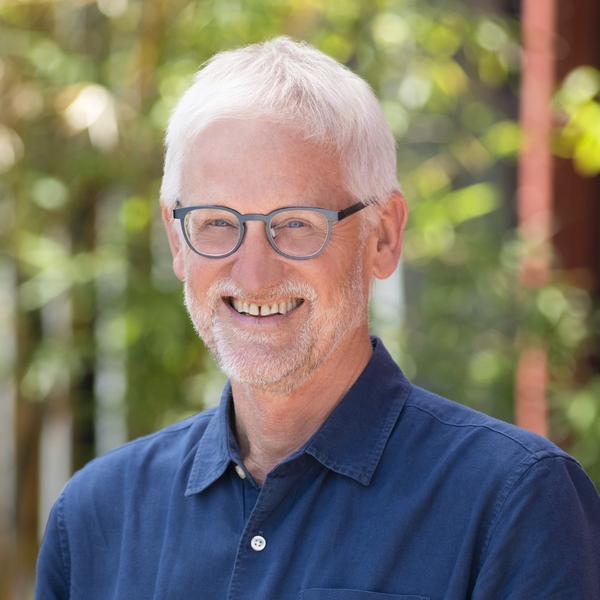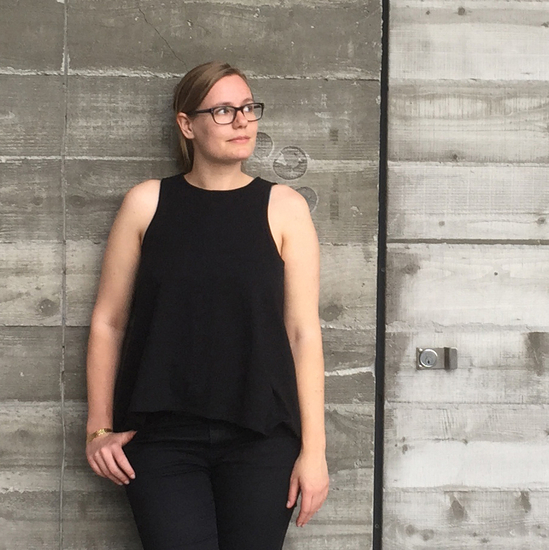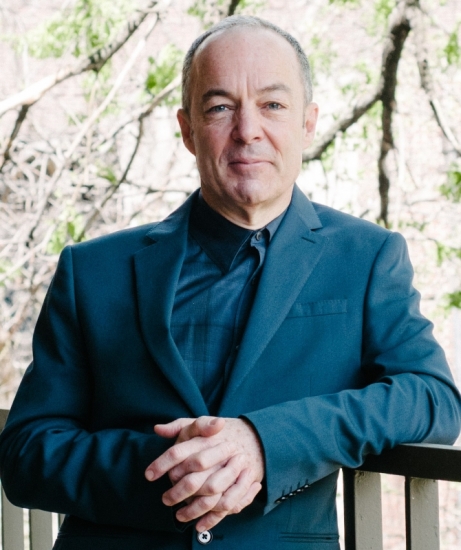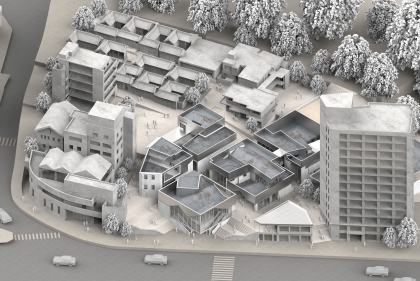Stuart Weitzman School of Design
102 Meyerson Hall
210 South 34th Street
Philadelphia, PA 19104
Get the latest Weitzman news in your Inbox
About
Join the Graduate Program in Historic Preservation on Wednesday, October 6 at 5:00pm over zoom for a lecture by Larry Strain, FAIA. Following the lecture will be a discussion with William Braham and Stephanie Carlisle. This virtual event is free and open to the public however registration is required.
From an embodied carbon standpoint, “the greenest building may one that is already built”, but from the perspective of operating carbon, existing buildings are a problem. We can’t afford to leave them alone and we can’t afford to replace them. Reusing and upgrading what we have is going to be the key to reducing carbon emissions from the built environment. It is also strengthens neighborhoods, maintains diversity, builds equity, increases resilience, and improves thermal comfort, and health.
If you require any accessibility accommodation, such as live captioning, audio description, or a sign language interpreter, please email news@design.upenn.edu to let us know what you need. Please note, we require at least 48 hours’ notice. If you register within 48 hours of this event, we won’t be able to secure the appropriate accommodations.
 Larry Strain | Founding Principal of Siegel & Strain Architects, known for community and sustainable design and research. Early research includes the Green Spec, one of the first guideline specifications for sustainable materials, and the Emeryville Resourceful Building Project, an affordable housing project that included an early use of whole building Life Cycle Assessment (LCA). He has led many of the firms deep green projects including three AIA COTE Top Ten winners. Larry has served on the boards of the Northern California Chapter of the USGBC, the Ecological Building Network and the Carbon Leadership Forum (CLF), and was on the research team for CLF’s Embodied Carbon Benchmarking project. Larry has been writing and speaking on materials, carbon and reusing buildings for more than 20 years, and for the last ten years has focused on reducing the total carbon footprint of the built environment.
Larry Strain | Founding Principal of Siegel & Strain Architects, known for community and sustainable design and research. Early research includes the Green Spec, one of the first guideline specifications for sustainable materials, and the Emeryville Resourceful Building Project, an affordable housing project that included an early use of whole building Life Cycle Assessment (LCA). He has led many of the firms deep green projects including three AIA COTE Top Ten winners. Larry has served on the boards of the Northern California Chapter of the USGBC, the Ecological Building Network and the Carbon Leadership Forum (CLF), and was on the research team for CLF’s Embodied Carbon Benchmarking project. Larry has been writing and speaking on materials, carbon and reusing buildings for more than 20 years, and for the last ten years has focused on reducing the total carbon footprint of the built environment.
 Stephanie Carlisle is an architect and ecologist whose work focuses on the interaction between the constructed and natural environment, including life cycle assessment (LCA), urban ecology, environmental justice, and climate policy. She is a research scientist at the Carbon Leadership Forum, where she works to develop open-access embodied carbon and LCA data, tools, and methods to support the building sector in radically decarbonizing construction.
Stephanie Carlisle is an architect and ecologist whose work focuses on the interaction between the constructed and natural environment, including life cycle assessment (LCA), urban ecology, environmental justice, and climate policy. She is a research scientist at the Carbon Leadership Forum, where she works to develop open-access embodied carbon and LCA data, tools, and methods to support the building sector in radically decarbonizing construction.
Stephanie joined the faculty at the University of Pennsylvania Stuart Weitzman School of Design in 2014. She is presently a lecturer in Urban Ecology in the Department of Landscape Architecture and a lecturer in Building Technology in the Department of Architecture. Her classes train students to expand their design practice and research skills to address the pressing challenges of climate change and social justice.
Previously, Stephanie worked for nine years as a Principal and Environmental Researcher at KieranTimberlake Architects in Philadelphia, where she helped lead the office’s research on embodied carbon, material health, landscape ecology, and environmental impacts. Since 2012, she worked on the development team for Tally, a software tool that enables architects and engineers to conduct full-building life cycle assessments during design. Since then, she has trained hundreds of designers in LCA, carbon accounting, and strategies to combat climate change in built projects. Most recently, she serves on the Steering Committee for US Architects Declare a Climate, Justice, and Biodiversity Emergency, a climate action group pushing for radical change in architectural practice and education.
Her work as has published widely in books, journals, and popular press including Health Design Thinking (MIT Press 2020), Embodied Energy and Design (Lars Müller Publishers 2017), Green Roof Ecosystems (Springer 2015), International Journal of Life Cycle Assessment, Buildings and Technology, Cities and the Environment, DOMUS, Architecture Magazine, Fast Company, and others. She has conducted numerous workshops for professional and academic audiences, and has lectured, taught and served as a critic in several US and international design programs. She is the Co-Editor-in-Chief of Scenario Journal, an online publication devoted to interdisciplinary conversations between landscape architecture, urban design, engineering, and ecology.
Stephanie received a Master’s in Environmental Management from the Yale School of Forestry, an M. Arch from Yale School of Architecture, and a BA in Religion and Anthropology form Wesleyan University.

William W. Braham, PhD, FAIA is a Professor of Architecture at the University of Pennsylvania, where he previously served as Chair, and is currently Director of the Master of Environmental Building Design and of the Center for Environmental Building + Design. He has worked on energy and architecture for over 30 years as a designer, consultant, researcher, and author of numerous articles and books.


 Expand Image
Expand Image
